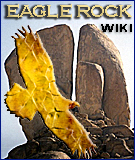Difference between revisions of "The arts"
From eagle-rock.org
| Line 5: | Line 5: | ||
::The arts represent an outlet of expression, that is usually influenced by culture and which in turn helps to change culture. As such, the arts are a physical manifestation of the internal creative impulse. | ::The arts represent an outlet of expression, that is usually influenced by culture and which in turn helps to change culture. As such, the arts are a physical manifestation of the internal creative impulse. | ||
::"The arts" are usually contrasted with "The sciences".{{brc}} | ::"The arts" are usually contrasted with "The sciences".{{brc}} | ||
| + | |||
| + | |||
| + | [[Literature]] - [[Music]] - [[Dance]] - [[Theatre]] - [[Culinary arts]] - [[Photography]] - [[Film]] - [[Art]] - [[Drawing]] - [[Painting]] - [[Sculpting]] | ||
[[Category:Culture]] | [[Category:Culture]] | ||
[[Category:Culture start pages]] | [[Category:Culture start pages]] | ||
Revision as of 20:42, 13 March 2016
Higher topic: Culture
Underlying topic(s): Art, Culinary arts, Dance, Drawing, Film, Literature, Music, Painting, Photography, Sculpting, Theatre
Underlying topic(s): Art, Culinary arts, Dance, Drawing, Film, Literature, Music, Painting, Photography, Sculpting, Theatre
- The arts are a large part of culture, and the word means much more than "art". The arts include visual arts (painting, drawing, sculpture, etc.), literary arts (poetry, drama, story, etc.) and performing arts (theatre, music, dance, drama, etc.).
- The arts represent an outlet of expression, that is usually influenced by culture and which in turn helps to change culture. As such, the arts are a physical manifestation of the internal creative impulse.
- "The arts" are usually contrasted with "The sciences".
Literature - Music - Dance - Theatre - Culinary arts - Photography - Film - Art - Drawing - Painting - Sculpting

